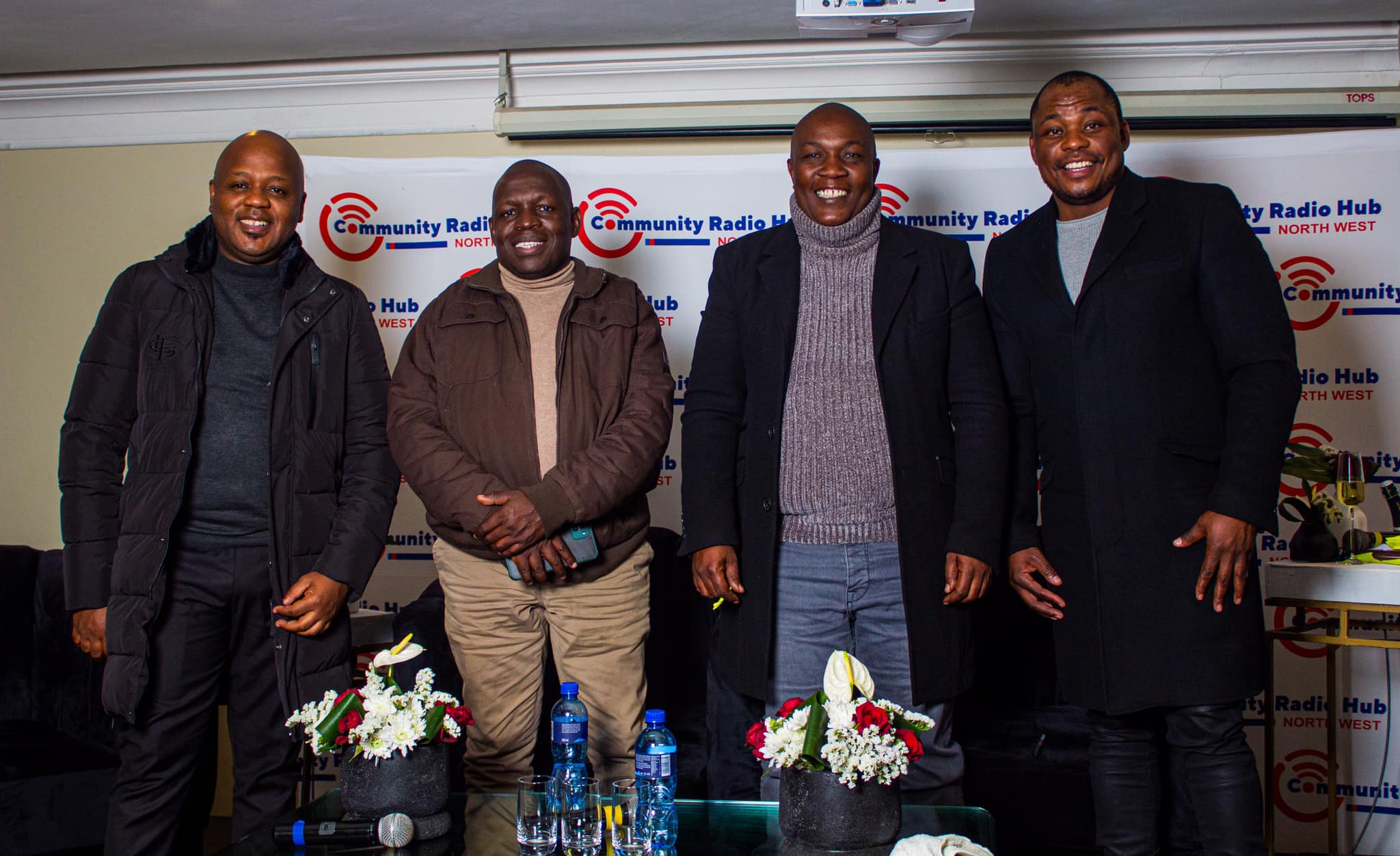
Sir Max Network recently hosted a two-hour round-table discussion at Protea Hotel by Marriott in Mahikeng, with the topic being: The State of Community Radio in the North West province.
The guests and panel members were Hlanganani Malungane, the Secretary of the National Community Radio Forum (NCRF), Karabo Kgokong who is the Chairperson of the North West Community Radio Hub (NWCRH), and Thabo Leping, the Secretary of NWCRH.
The two-hour session was inclusive of the discussion of the role of the NCRF and the NWCRH as organisations, the importance of community radio support, agencies, government entities, stakeholders, ethics, leadership, and management amongst other issues.
In opening Sir Max highlighted that it is difficult to avoid community radio today because it is forcing itself into the sector.
“Community radio is an essential part of the South African broadcasting landscape it is pervasive, despite the rise of social media and the rise of the Internet, community radio continues to make strides and occupy its rightful space,” he said.
Karabo also shared his views that issues of community radio are bigger than one single point of agencies and highlighted that everything that the NWCRH does is to try to balance out all the negativities that are facing the sector.
“Agencies are one real challenge and a continuous struggle. Frankly, we find that in the province we are dealing with dodgy people who have seen an opportunity to rob the community radio sector,” he said.
According to Karabo, the collaboration between NCRF and NWCRH is important in the sense that they want to phase out agencies completely because there is no need to go through a third party for two stations to work together, and therefore, encourage all stations affiliated with the hub to develop a position that will eliminate this problem.
Both Karabo and Thabo emphasized that there are perceptions about the community radio sector and that the NWCRH is trying to turn that around by ensuring that radio stations are taken seriously. In as much as each radio station has its own identity, the NWCRH encourages uniformity in capacity building, plans, and in professionalizing the sector, they agreed in unison.
“The role of government is of paramount importance but also it depends on the important role that media plays. Community radio stations are often taken as institutes that politicians and government can take advantage of, especially during elections,” said Hlanganani.
Karabo added that boards and management are still interfering in the daily running of the radio stations and emphasized that these are the issues that are holding radio stations back and particularly the reason why the NWCRH is having honest conversations of introspections on how businesses are run and how stations are growing their businesses.
“One of the most important things of reviving the radio sector and making sure it remains strong is to ensure that we are united amongst others and for community radio stations to take a stance of independence from agencies,” added Hlanganani.
Thabo says that the mandate of the NWCRH is to look into matters of approaching the Department of Public Works to request that some of the buildings which are neglected, be offered to community radio stations so that when they have money, they start developing those places for the radios station to grow.
Karabo concluded that agencies are just one of the challenges but not the entire challenge. Therefore, the NWCRH aims to work on sustainability to work on capacity building challenges, be informed, and invest in research processes and how the North West benchmark with successful community radio stations in other provinces.
“Social media has proven to be another challenge as we have presenters going on air and broadcasting what is already trending. We are going to invest resources into developing further our content and our presenters should create content that will trend, instead of relying on things that are trending which are created by influencers on digital platforms,” said Karabo.
At the end of the discussion, Sir Max made a requisition to the panel members of having part two of the discussion where issues of community involvement, talent development, the business model that the NWCRH is going to approach, and the issues of RAMS.


